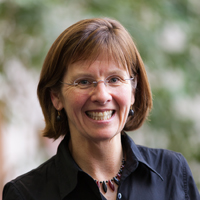NEBC 120th Anniversary Research Conference
Celebrating Botanical Research!
June 5-7, 2015
Smith College
Northampton, Massachusetts
Conference Program
Printable Conference Schedule (pdf)
Printable Oral and Poster Titles & Schedule (pdf)
Oral Presentation Titles & Schedule (html)
Poster Presentation Titles (html)
Friday, June 5
5-7 pm
- Reception at Smith College Greenhouses
Saturday, June 6
8 am
- Check-In at Wright Hall beginning at 8am
- Light refreshments available
9 am – 10:30 am
- Oral Presentations in Weinstein Auditorium (Wright Hall) and McConnell Hall
10:30 am – 10:45 am
- Coffee Break
10:45 am – 11:50 am
- Oral Presentations in Weinstein Auditorium (Wright Hall) and McConnell Hall
12 noon – 1:30 pm
- Lunch
- Poster session featuring botanical research (Neilson Library Browsing Room)
- Exhibit tables by botanical organizations (Neilson Library Browsing Room)
Keynote Speaker
1:30 pm – 2:30 pm
Dr. Pamela Diggle
Editor-in-Chief, American Journal of Botany
Past President, Botanical Society of America
Website: https://diggle.lab.uconn.edu/

“Learned Societies” — Past, Present, and Future?
The formation of “learned societies” began in the mid-17th century and played a central role in the establishment and practice of modern science. I will explore the history and evolution of learned societies from the establishment of the Royal Society for the Improvement of Natural Knowledge in London in 1663 and the American Philosophical Society in pre-revolutionary Philadelphia, to the emergence of the diverse “professional and regional societies” of today. From their very inception as venues for conversation and presentation of new ideas, learned societies have played, and continue to play, essential roles in fostering scholarly interactions and communication, and in disseminating research. I will conclude by considering the future relevance of learned societies in our increasingly digital age. Given that we can all upload our talks to YouTube, download publications instantaneously, and be in constant contact via multiple electronic means, why have we come to this meeting? And what does the future hold for learned societies, such as those invited to this conference.
2:40 pm – 3:50 pm
- Oral Presentations in Weinstein Auditorium (Wright Hall) and McConnell Hall
3:50 pm – 4:25 pm
- Cake Break to celebrate New England Botanical Club’s 120th Anniversary
4:30 pm – 5:10 pm
- Oral Presentations in Weinstein Auditorium (Wright Hall) and McConnell Hall
5:15 pm – 5:30 pm
- Wrap-up and announcements
Sunday, June 7
9 am – 11:00 am Brainstorm Meeting at MacLeish Field Station
- Brainstorm meeting: Ensuring the future of botanical organizations. (Limited to 25 active members/leaders of botanical organizations)
10 am – 3:00 pm Botanical Forays
- Field Trips (for registered conference attendees only) – deadline to choose May 6
- All except MacLeish field trip leave from Smith College Parking Garage
- Bag lunch provided
